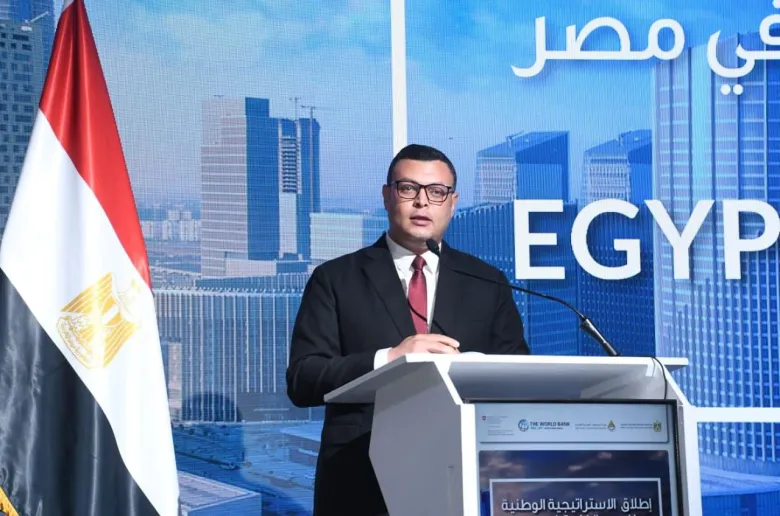Engineer Sherif El-Sherbini, Minister of Housing, Utilities, and Urban Communities, launched the first phase of Egypt’s National Smart Cities Strategy, which focuses on new cities. The event was attended by several ministers, including Dr. Amr Talaat, Minister of Communications and Information Technology, and Dr. Manal Awad, Minister of Local Development and Acting Minister of Environment, along with senior government officials, ambassadors, and representatives from international organizations such as the World Bank.
The event featured a documentary film showcasing the main features of the National Strategy and its expected impact on improving quality of life and promoting sustainable development in new cities. This aligns with Egypt’s commitment under the leadership of President Abdel Fattah El-Sisi to achieve Egypt’s Vision 2030 and strengthen its position as a pioneer in building smart cities that balance economic growth with social justice, while focusing on protecting natural resources and meeting citizens’ needs.
Engineer Sherif El-Sherbini expressed his pride in participating in this national event, emphasizing the importance of uniting Egyptians around a shared vision for a brighter future that ensures a dignified and sustainable life for all. He noted that the launch of the strategy is a starting point for developing Egyptian cities into smart digital models that preserve environmental sustainability and create new opportunities for the nation’s citizens.

The minister explained that Egypt’s Vision 2030 was not just a development plan but a roadmap toward a future based on social justice, innovation, and prosperity. The National Smart Cities Strategy, he added, is an essential part of this vision, aimed at transforming new cities into sustainable environments that meet citizens’ aspirations and contribute to comprehensive development.
He further noted that rapid population growth and urban expansion have posed new challenges for the state, pushing it to search for innovative solutions that go beyond traditional models. Smart cities emerged as a response to these challenges, with the goal of turning them into opportunities that balance economic growth with the preservation of resources.
The minister stressed that cooperation across sectors forms a comprehensive framework that opens opportunities for investment and positions Egyptian cities at the forefront of flexible, attractive environments for human talent and innovation. This, he said, achieves the needed balance between people and the environment, as well as between development and sustainability.
He pointed out that smart cities are not merely about advanced applications or networks but are built on human-centered foundations, including smart education, smart healthcare, safe mobility, and sustainable energy management. These are cities that foster flexibility and creativity among citizens while ensuring the protection of their rights and the rights of future generations.
In conclusion, Engineer Sherif El-Sherbini emphasized that the launch of the strategy marks only the beginning of a new phase that relies on constructive partnerships between the state, society, and the private sector. He affirmed that the Smart Cities Project is a comprehensive national vision that calls for everyone’s participation in achieving its goals and working collectively to build a future that respects ambitions while providing a safe and sustainable environment.
For the latest official offerings and to browse thousands of residential properties across different cities, visit the Official Egyptian Real Estate Platform — your safe destination to find the right home for you and your family. You can also explore the features of the Mazarine Apartment project in the North Coast.
